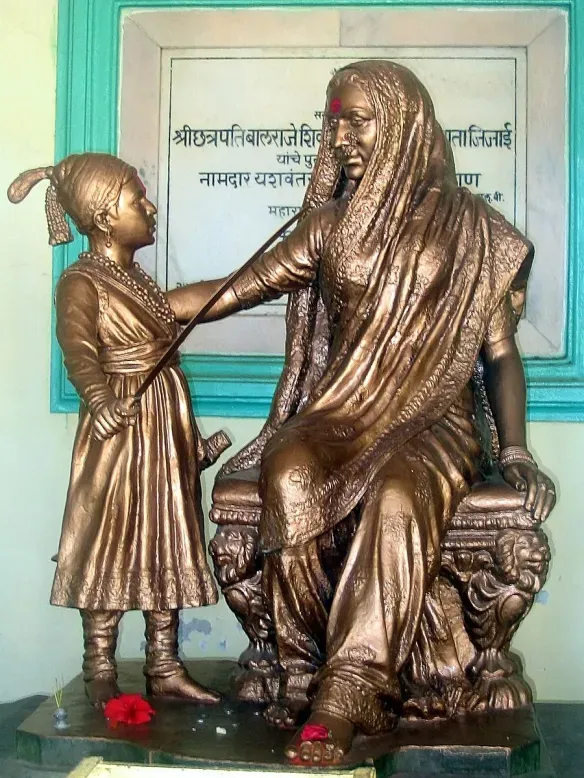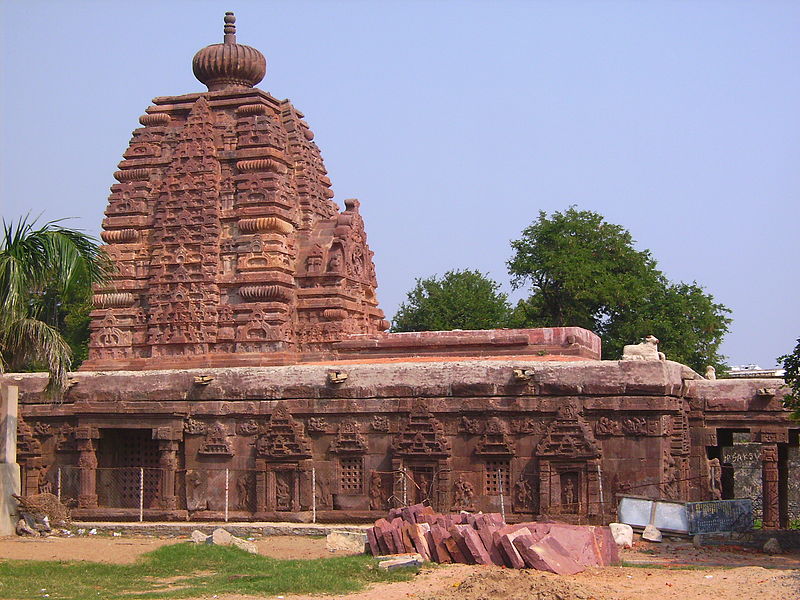Empowering Motherhood: Unveiling the Inspiring Tale of Jijabai and Her Legacy in Hinduism
Explore Jijabai, the influential Maratha queen & mother of Chhatrapati Shivaji, who played a crucial role in shaping India's history by instilling Hindu values.

Jijabai, also known as Rajmata Jijabai or Jijau, was a noblewoman in 17th century India who played a significant role in the early life of her son, Chhatrapati Shivaji Maharaj, the founder of the Maratha Empire. Born on January 12, 1598, in a high-status family, she grew up to become one of the most inspiring and influential women in Indian history. Jijabai was a woman of indomitable spirit and unwavering courage, which she instilled in her son to pave the way for the establishment of a strong and prosperous Maratha Empire.
Married to Shahaji Bhonsle, a great Maratha general, Jijabai's life was full of challenges and hardships. The political instability, constant wars, and invasions during her time demanded a strong and resilient approach to protect her family and her people. Amidst all these difficulties, Jijabai was determined to raise her son, Shivaji, as a fearless warrior and a just ruler, guided by the teachings of Hinduism and the high ideals of the time. She taught him the importance of self-reliance, patriotism, and the need to protect the honor and dignity of the motherland, which eventually shaped Shivaji's military and leadership skills.
Jijabai's unwavering faith in the divine and her strong adherence to Dharma enabled her to guide Shivaji in his pursuit of establishing an independent kingdom. She emphasized the need to adhere to the principles of justice, integrity, and service to the people, which later became the foundation of Shivaji's rule. As an ideal mother, she played a crucial role in shaping Shivaji's moral and ethical values, and her teachings and guidance profoundly influenced his life and reign.
One of the most famous stories of Jijabai's life is the construction of the fort at Shivneri, the birthplace of Shivaji. When the construction was nearing completion, Jijabai ordered the workers to tear down everything and start anew when she discovered that the main entrance of the fort would open towards the north, the direction considered inauspicious according to Hindu beliefs. This story symbolizes her strong conviction in her faith and her uncompromising stand on upholding the values and traditions of her religion.
Jijabai's unwavering courage and deep-rooted love for her people and her land inspired generations of women and men alike. She instilled in her son the importance of respecting women and treating them as equals, which was reflected in the progressive policies implemented during Shivaji's rule. Even today, Jijabai is remembered and revered as a symbol of strength, wisdom, and devotion, and her life stands as a testimony to the indomitable spirit of womanhood in Indian history.
In conclusion, the life of Jijabai serves as an important lesson on the significance of strong values, unwavering faith, and determination in overcoming adversities. As a mother and a guiding force, Jijabai played an instrumental role in shaping the life and reign of her son, Chhatrapati Shivaji Maharaj, demonstrating the remarkable influence that a mother can have on her child. Jijabai's legacy continues to inspire generations, and her life and teachings hold great relevance in today's world, urging us to remain steadfast in our beliefs and never compromise on our values.




